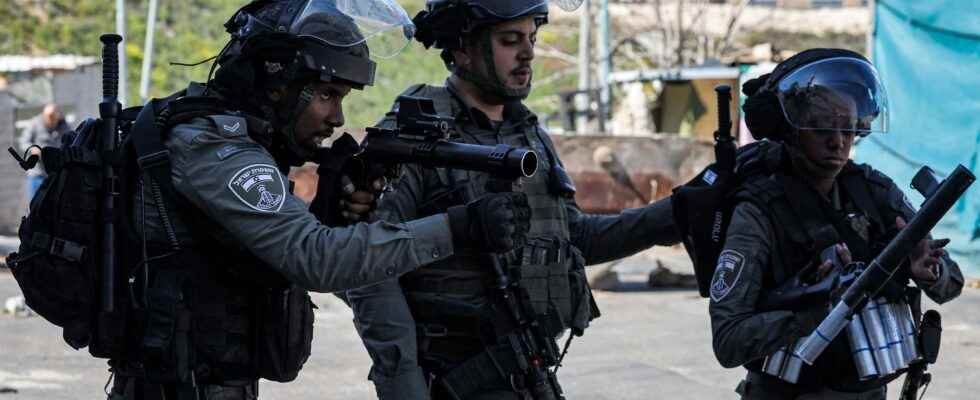Friday, January 27, shortly after the start of Shabbat, Alqam Khayri, a 21-year-old Palestinian, opened fire on Israelis returning from a synagogue in Neve Yaakov, a Jewish neighborhood in East Jerusalem. The terrorist kills seven people before being shot dead by the police. The next day, on the outskirts of the old town, a thirteen-year-old boy fired at a group of Jewish passers-by. He seriously injures a father but, this time, one of the members of the group brandishes the machine gun he is carrying over his shoulder and neutralizes the young assailant.
As of Monday, Benyamin Netanyahu compares the two attacks in front of his ministerial cabinet and draws an unequivocal conclusion: “Trained and armed citizens save lives”. In the process, he announced a plan to grant tens of thousands of additional gun permits to Israeli civilians.
Since then, firearms training centers have been full. “People have understood that you have to be armed because there can’t be a policeman on every street corner,” said Michaël, an instructor at the Pisgat Zeev shooting club, north of Jerusalem. Behind him, in a small, narrow, deep room, apprentice marksmen are practicing on paper targets. “The law requires us to aim in the legs, but if the aggressor gets up, we can shoot in the upper body,” says Yaron, a young father. Others, with an older practice, come to improve. Permit applications have indeed started to explode since the riots of Israeli Arabs in May 2021, followed a few months later by the start of a wave of attacks of an intensity unprecedented since the second Intifada (2000-2005). From less than 9,000 files in 2020, applications for gun licenses jumped to nearly 20,000 in 2021. And 2022 should mark a new record.
The end of a certain caution from the authorities
Unlike the Second Amendment of the US Constitution, no basic law authorizes the carrying of a weapon in Israel. “It’s a privilege, not a right,” recalls Mikaël Decker, a lawyer specializing in weapons legislation. To obtain his permit, the candidate must meet several criteria: a clean criminal record, a stable psychological profile and, above all, a credible reason. In fact, apart from security professionals, only Israelis residing in risk areas such as settlements in the West Bank or certain neighborhoods in Jerusalem obtain a permit.
The Israeli authorities have long handled the legislation on weapons with great care, amending it several times since the first text of 1947. Historically, the diffusion of light weapons among the civilian population was justified by the persistence of terrorism and the weakness police personnel. For these same reasons, young conscripts from the Tsahal, the Israeli army, must carry their weapon with them at all times, including on leave, in order to be able to intervene in the event of an attack in a public place.
Over the past decade, as terrorist attacks declined sharply, authorities restricted the number of permits issued. A caution fueled by feminist pressure groups, which point out that a third of the perpetrators of femicides use a weapon obtained legally. “The state cannot privatize the security of its citizens”, reacts Naama Lazimi, a parliamentarian opposed to the liberalization of firearms.
The proliferation of arms also worries Palestinians in Jerusalem. “For me, this is incitement to violence. This can lead a paranoid settler to shoot an innocent person because he feels threatened,” said Jalal Abukhater, a Palestinian activist from East Jerusalem. So far, the circulation of weapons in Israel has never led to one of those countless killings that regularly bloody American public places. This is largely due to the preliminary psychological examination which disqualifies risky personalities. But with the resurgence of attacks and the official incitement to self-defense, slippages are likely to multiply in the Israeli streets.
